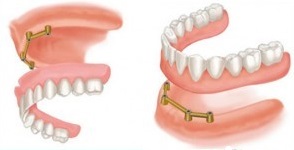
Healthy bones, a healthy diet
2015-09-21
ارتباط پوکی استخوان با از دست دادن دندان
2015-09-21Calcium is a key nutrient for your body to stay strong and healthy. Almost every cell in the body uses calcium in some way, including the nervous system, muscles, and heart. It is also an essential building block for lifelong bone health in both men and women. While the amount you need depends on various factors, everyone can benefit from eating calcium-rich foods, limiting foods that deplete calcium, and getting enough magnesium and vitamins D and K-nutrients that help calcium do its job
Calcium for overall health and strong bones
Calcium is the most abundant mineral in the body, one that plays many vital roles. Your body uses it to build healthy bones and teeth, keep them strong as you age, send messages through the nervous system, help your blood clot, your muscles contract, and regulate the heart’s rhythm, among other things
If you don’t get enough calcium in your diet, your body will take calcium from your bones to ensure normal cell function, which can lead to weakened bones or osteoporosis. Calcium deficiency can also lead to mood problems such as irritability, anxiety, depression, and difficulty sleeping.
Despite these vital functions, many of us are confused about calcium and how to best protect our bones and overall health. How much calcium should you get? Where should you get it? And what’s the deal with vitamin D, magnesium, vitamin K and other nutrients that help calcium do its job
This confusion means that many of us are not getting the recommended daily amount of calcium. Approximately one in two women (and about one in four men) over the age of 50 will break a bone due to osteoporosis. But osteoporosis is not an inevitable part of getting older. Whatever your age, it’s important to take care of your bones and get the calcium you need
Your body gets the calcium it needs in one of two ways. The first and best way is through the foods you eat or the supplements you take. However, if you’re not consuming enough calcium, your body will get it in a different way, pulling it from your bones where it’s stored. That’s why diet is key
Getting enough calcium in your diet is not just important for older people. It’s vital for children, teens, and young adults under the age of 30 to get enough calcium to build bone mass. Making smart choices now will help you avoid serious bone loss later in life. But no matter your age, you can take steps to protect your bones and put the brakes on osteoporosis
The calcium and osteoporosis connection
Osteoporosis is a “silent” disease characterized by loss of bone mass. Due to weakened bones, fractures become commonplace, which leads to serious health risks such as the inability to walk. People with osteoporosis often don’t recover after a fall and it is the second most common cause of death in women, mostly those aged 60 and older. Men are also at risk of developing osteoporosis, but typically 5 to 10 years later than women. Fortunately, osteoporosis is preventable for most people, and getting enough calcium in your diet is the first place to start.






